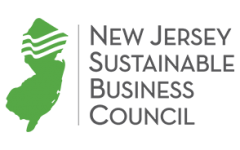A recent report confirms what many New Jerseyans feared: climate change poses acute and unique risks to our state and our economic future. Everything we do now–from setting emissions caps to prioritizing fuel efficiency–will shape our state’s coastline and our businesses’ bottom lines in the coming decades.
The Union of Concerned Scientists did an exhaustive analysis of Zillow properties, and using sea level rise projections, estimated the number and value of coastal properties that are likely to face chronic flooding, which means 26 times per year or more. We’re facing a staggering cost.
The scientists warn that roughly 62,000 New Jersey homes are at risk of chronic flooding by 2045. Today, those homes are worth more than $26 billion, they house nearly 79,000 people, and contribute nearly $390 million to the local property tax base.
Rising seas will hit New Jersey’s tourist economy especially hard. Of New Jersey’s beach towns, 10 are projected to have at least 1,500 at-risk homes in the next 30 years. Ocean City tops the list with more than 7,200 at-risk homes. Furthermore, within three decades, roughly 2,600 commercial properties will be at risk of chronic flooding. Nearly all of these commercial properties are retail or hospitality establishments: hotels, restaurants, gas stations, convenience stores, and pharmacies. It’s fair to deduce that flooding every other week will not just damage the property but also the profitability and viability of these businesses.
These costs don’t even take into account the public resources we all rely on like roads, bridges, power plants, airports, ports, public buildings, military bases, and other critical infrastructure along the coast – much of which will face the risk of chronic salt water inundation in the next 30 years.
Given the enormous magnitude and increasing likelihood of these harmful impacts, an aggressive combination of market-driven innovation and policy solutions is urgently needed.
Thousands of New Jersey businesses, including Earth Friendly Products and Cox Printers & Digital Media are already doing their part to lower their carbon footprint through energy efficiency improvements and shifting to renewable energy sources. New Jersey companies like Advanced Solar Products, Ciel Power, and NJ Green Energy Consulting are at the leading edge of advancing market innovations that are key to creating a vibrant clean energy economy for the 21st century.
But market-driven efforts alone are not nearly enough to address a challenge of this scale.
That’s why the New Jersey Sustainable Business Council is urging Gov. Murphy to adopt a strong emissions cap as part of the ongoing effort to rejoin the Regional Greenhouse Gas Initiative (RGGI). Based on the recently adopted energy bill, experts have estimated that the best emissions cap for New Jersey would be 12 to 13 million tons in 2020. We enthusiastically endorse this proposal.
Data shows that a strong RGGI is good for the environment, boosts the economy, and saves New Jersey families money.
Between 2009 and 2011, before Chris Christie pulled us out of this carbon market, New Jersey’s participation in RGGI created $151 million in economic value and almost 1,800 job-years in our state. In that time, New Jersey collected $118 million in revenue from RGGI, $27 million of which was invested in renewables and $10 million of which provided direct bill assistance to ratepayers. The reach of those investments reduced electricity costs to ratepayers by $149 million until 2011. Just like a minimum wage boost or an earned income tax credit, economists speculate that the dollars that RGGI saved families went back into the local economy.
Gov. Murphy has already taken many important steps to reorient New Jersey toward a strong, healthy future but he needs to keep going. Setting a strong RGGI emissions cap now is an imperative that represents a key milestone in efforts to mitigate and adapt to climate change, and will give New Jersey businesses the clear policy signal we need to more confidently shift investment toward creating a vibrant, resilient and sustainable 21st century New Jersey economy.
Scott Fischer is the Owner of NJSBC business member Ciel Power, LLC
Richard Lawton is the Executive Director of the New Jersey Sustainable Business Council.

